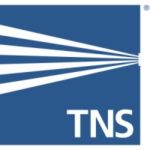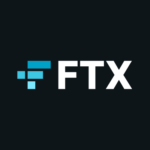In other news, DTCC hires from BNY Mellon for its top spot, TNS offers access to all U.S. equity options venues, and FTX.COM widens its deal with Eventus.
Fidelity Launches a 401(k) Plan for Digital Assets
 Fidelity Investments will allow individuals to allocate a portion of their retirement savings to Bitcoin if their employers also agree to allow the cryptocurrency to be part of a 401(k) plan, officials say.
Fidelity Investments will allow individuals to allocate a portion of their retirement savings to Bitcoin if their employers also agree to allow the cryptocurrency to be part of a 401(k) plan, officials say.
To facilitate this change, Fidelity has launched the “workplace Digital Assets Account (DAA)” 401(k) retirement plan. A data analytics and visualization solutions provider, MicroStrategy, plans to add to allow a Bitcoin option for its employees later this year, according to Fidelity.
“MicroStrategy looks forward to working with Fidelity to become the first public company to offer their employees the option to invest in bitcoin as part of our 401(k) program,” says Michael Saylor, chairman and CEO of MicroStrategy, in a prepared statement. The DAA program will be widely available to employers by the middle of this year.
The move is another way Fidelity is advancing its role as “a holistic digital assets service provider,” Fidelity officials say.
“Fidelity began its exploration of blockchain technology in 2014 with bitcoin mining and in 2018 launched its first commercial offering: Fidelity Digital Assets, a platform that offers custody and trade execution for digital assets to institutional investors. In 2020, Fidelity’s digital asset management business launched a private bitcoin fund that is currently available to accredited investors,” according to Fidelity.
“There is growing interest from plan sponsors for vehicles that enable them to provide their employees access to digital assets in defined contribution plans, and in turn from individuals with an appetite to incorporate cryptocurrencies into their long-term investment strategies,” says Dave Gray, head of workplace retirement offerings and platforms at Fidelity Investments.
DTCC Taps BNY Mellon for Top Post

Frank La Salla
Francis (Frank) La Salla, the current CEO of BNY Mellon’s issuer services business will become the next president and CEO of the Depository Trust & Clearing Corp. (DTCC) on August 12, taking over for the retiring Michael C. Bodson, who has been DTCC’s CEO since July 2012, officials say.
“La Salla joins DTCC on June 13, 2022 as CEO-elect, and between June and August, La Salla and Bodson will work together to ensure a seamless and orderly transition of responsibilities,” according to the DTCC.
The DTCC’s board of directors also announced that La Salla — a member of BNY Mellon’s executive committee — will also serve as president and CEO of DTCC’s principal operating subsidiaries, The Depository Trust Company (DTC), Fixed Income Clearing Corp. (FICC) and National Securities Clearing Corp. (NSCC). He will also become a member of DTCC’s board of directors and a member of DTCC’s management committee.
La Salla has had a 28-year career at BNY Mellon, “where he held several senior-level positions” such as CEO of Corporate Trust, overseeing depositary receipts, CEO of BNY Mellon’s alternative investment services and structured products business, co-head of global client relationships and head of trading services at Pershing LLC, a BNY Mellon company, president and chief operating officer (COO) of BNY Clearing Services, officials say.
Before joining BNY Mellon, La Salla served as CEO of BHF Securities Corp., a U.S. broker-dealer subsidiary of Germany’s BHF Bank AG, and COO of Société Generale Securities, overseeing the French financial institution’s U.S. brokerage business, officials say.
A post-trade market infrastructure and systems provider, the DTCC, “industry owned and governed,” provides clearing, settlement, asset servicing, data management, data reporting and information services across asset classes, officials say. In 2021, the DTCC and its subsidiaries processed securities transactions valued at nearly U.S. $2.4 quadrillion. Its depository provides custody and asset servicing for securities issues from 177 countries and territories valued at U.S. $87.1 trillion.
TNS Launches Equity Options Access to 16 U.S. Exchanges
 Transaction Network Services (TNS) reports that it can help securities firms “directly access market data from all U.S. equity option exchanges,” in an effort to mitigate complexity and costs, officials say.
Transaction Network Services (TNS) reports that it can help securities firms “directly access market data from all U.S. equity option exchanges,” in an effort to mitigate complexity and costs, officials say.
The new offering from the provider of infrastructure, fiber-optic connectivity, market data, and analytic services “is achieved because of TNS’ mutualized exchange connections and status as a registered data vendor with all 16 Equity Option Exchanges in the US,” officials say.
The 16 U.S. exchanges “are segmented into five exchange groups; the Boston Options Exchange (BOX) operates one US Equity Options Exchange, Nasdaq operates six, the Chicago Board Options Exchange (CBOE) operates four, NYSE operates two and the Miami Exchange (MIAX) operates three,” according to TNS officials.
Accessing so many equity options venues “requires extremely high bandwidth,” says Jeff Mezger, vice president of product management at TNS.
“With data feeds requiring up to 20 gigabits per second each, and some exchanges requiring 40-gigabit bandwidth connections, there can be many challenges for trading firms opting for a ‘do-it-yourself’ approach. We have designed our network with 100-gigabit backbone links to handle the high volumes, which is vital for clients wanting to transport data for all of these exchanges,” Mezger says in a prepared statement. “TNS connects to these exchanges from within the colocation facilities.”
FTX.COM Extends Agreement with Eventus
 Cryptocurrency exchange FTX.COM will be expanding its usage of the trade surveillance and market risk solutions from vendor Eventus for all of its markets across the globe, officials say.
Cryptocurrency exchange FTX.COM will be expanding its usage of the trade surveillance and market risk solutions from vendor Eventus for all of its markets across the globe, officials say.
The companies made the announcement at the FTX Crypto Bahamas conference, and the agreement “represents a substantial expansion of the relationship established late last year, when FTX US chose to deploy Validus for trade surveillance and risk monitoring on the FTX US spot market and on FTX US,” officials say.
Eventus’s Validus platform is in use for equities, options, futures, foreign exchange (FX), fixed income, and digital asset markets by tier-1 banks, broker-dealers, futures commission merchants (FCMs), proprietary trading groups, market centers, buy-side institutions, energy and commodity trading firms, and regulators.
Need a Reprint?